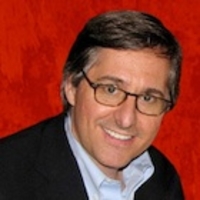Officially, Mark Zuckerberg swept through Harvard Yard on Monday afternoon as part of a recruiting tour, a campaign to find bright new engineers to help the 800 million-member-strong social network continue its quest for Internet domination. But there was something more to this visit to the campus where Facebook was created, in a room at Kirkland House, a mere seven years ago—something akin to the Beatles circa 1965 as depicted in Help! or a Roman emperor returning to his home village after conquering the world.
The kids, it turn out, just love this guy. He’s the hero of their generation, head and shoulders above everyone else in tech. “Bill Gates, not so much, he’s too old. Steve Jobs is up there. But Zuckerberg is the biggest,” said Joseph Botros, a freshman computer-science major who couldn’t get a ticket to Zuckerberg’s speech but showed up in Harvard Square on this crisp afternoon along with two pals just to get a glimpse of Zuckerberg during an outdoor “press conference” that lasted all of five minutes. What about the two guys who founded Google? Botros and his friends were asked. Are they up there with Zuckerberg? Not even close. Botros and his friends didn’t even know their names. (For the record, they are Larry Page and Sergey Brin.)
The incoming freshmen at Harvard know all about Zuckerberg, however. They know he started Facebook in his dorm room in the winter of 2004, originally as a website for Harvard students. They know he went off to California during summer break, raised venture funding, and never came back. They’ve seen The Social Network, and though it depicts Zuckerberg as a backstabbing, disloyal social misfit, they came away convinced that the movie was a load of fictionalized crap and that the real Zuckerberg is just about the coolest guy ever.
Some of the 200 students who got to attend Zuckerberg’s presentation (the press was barred) came away even more impressed. “I feared that Mark Zuckerberg would be very pretentious,” says Lucas Freitas, a computer-science and economics major from Brazil who is Botros’s roommate in Holworthy Hall, a dorm for freshmen. “It turned out I was completely wrong: Mark Zuckerberg is extremely passionate about his project and is actually a very cool guy.”

Freitas says he’d been inclined to dislike Zuckerberg because Eduardo Saverin, Zuckerberg’s original partner and one of the people who felt betrayed by Zuckerberg, is a fellow Brazilian. But Freitas left the 75-minute presentation determined to apply for an internship at Facebook. “He gave a very motivating talk,” Freitas says, adding that a highlight came during the Q&A, when Zuckerberg was asked to explain the difference between a good engineer and an exceptional engineer and responded that “exceptional engineers are passionate about what they do and when they’re determined to solve a problem they don’t give up until they get to an answer. So an exceptional engineer is a combination of intelligence, passion, and persistence.”
Students had to apply to get into the talk by sending a résumé to the career-services office at Harvard, which chose the lucky few who could attend the presentation, hosted by a Harvard computer-science professor. As for the press, about 100 of us got corralled into a roped-off area in the Yard, and three lucky hacks, handpicked in advance by Facebook’s PR flacks, were allowed to ask lame questions to which an amused-looking Zuckerberg gave lame answers before hurrying off to his talk.
Zuckerberg, dressed in jeans and a fleece jacket, was asked why he was visiting Harvard (answer: because “there are a lot of smart people here”) and why Facebook hasn’t opened an office in Boston (maybe we will someday), and where Facebook is going next (the first five years were about just getting as many people connected as possible, and now we are setting out to reinvent all sorts of industries by having them plug into Facebook).

But none of that really mattered. The big takeaway of this brief appearance was voiced by Emily Mistick, a freshman biology major from Holworthy Hall, who, when asked what she thought after seeing Zuckerberg, replied with a laugh, “He’s real.” That seemed to be good enough for the few hundred kids who had gathered to gawk at the boy billionaire.
Before leaving, I asked Botros, Mistick, and their dorm mate David Wang if they would ever dare follow Zuckerberg’s example and drop out of Harvard to start a company. “My dad would kill me,” Botros said, “but I’d do it.” The others agreed, and were quick to point out that if things didn’t work out, Harvard would probably take them back afterward.






